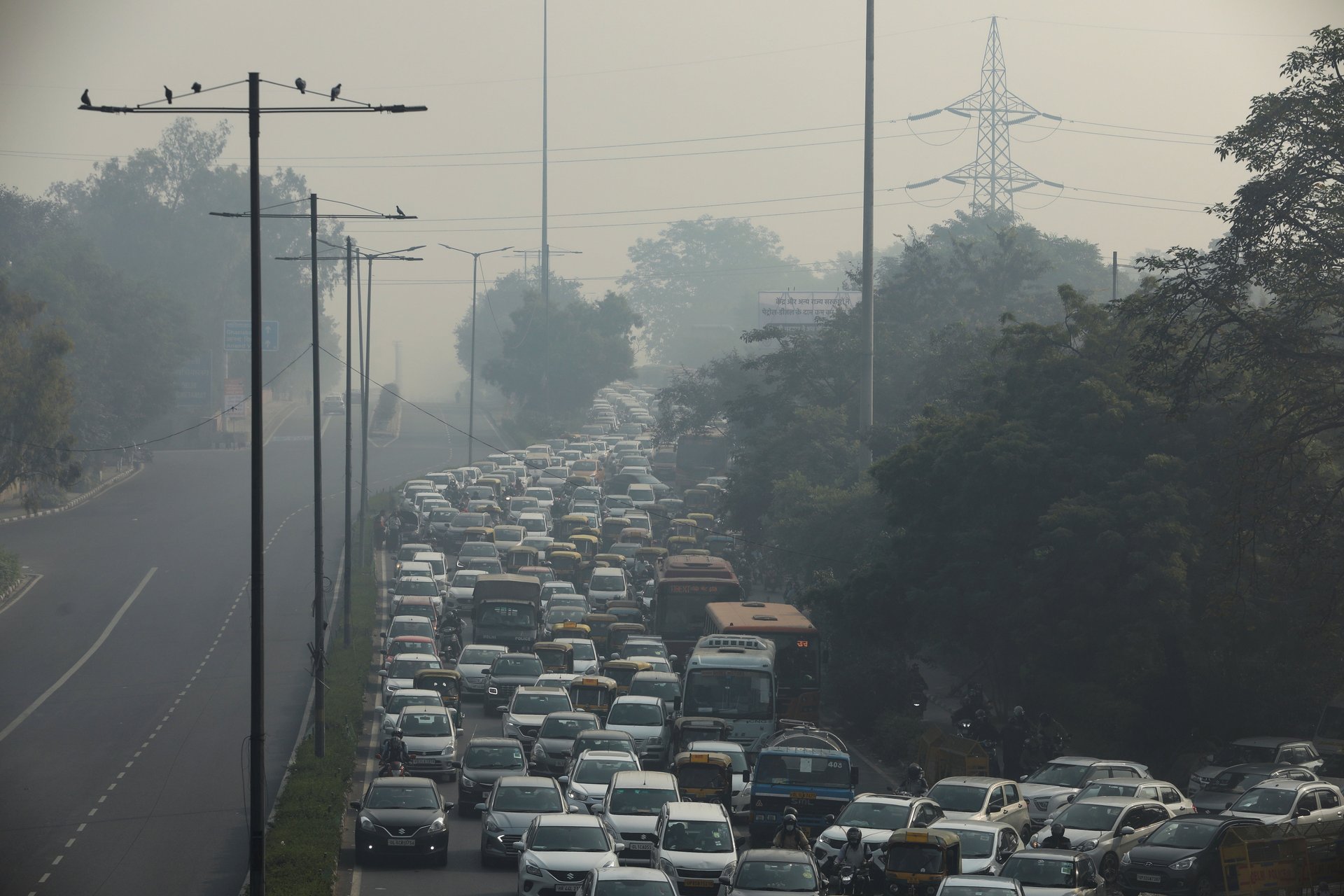Delhi's air has turned toxic again—prompting more band-aid solutions
Air pollution in Delhi is largely a result of the practice of burning farm stubble in the neighboring states.

At the onset of every winter, Delhi’s air grows habitually more polluted, filled with dust and smoke that refuse to disperse. On Wednesday (Nov. 2), the Delhi government suspended most construction and mining activities, as the quality of air deteriorated into the severe category on Tuesday night.
On Tuesday, Delhi recorded a score of 424 on its air quality index (AQI). The situation further worsened on Thursday, with some locations crossing the 700-mark. This was much higher than in other Indian cities such as Chennai and Mumbai, which reported AQI readings of 58 and 140 respectively.
To battle the air pollution in the national capital region (NCR), the government implemented the third stage of its Graded Response Action Plan (GRAP), a set of anti-pollution measures that kick in when the air pollution turns severe.
Under GRAP, Delhi’s air quality is classified into four categories based on the readings of the AQI. At this time of year, air pollution is largely a result of cooler weather and slower winds, combined with a seasonal surge in the practice of burning farm stubble in the neighboring states of Punjab, Uttar Pradesh, and Haryana.
Besides the restrictions on construction and mining, authorities can also ban some categories of petrol and diesel vehicles under the measures suggested by the third stage of GRAP.
If the AQI’s readings cross 450, the government will move to the fourth stage of GRAP, in which it can order cars off the roads, close schools, and instruct companies to summon only 50% of their employees to their offices.
Delhi’s air is choking children
Delhi’s pollution is exposing its residents—particularly senior citizens and children—to several health hazards.
Expressing concerns over the health of children, India’s child rights body, the National Commission for Protection of Child Rights, has recommended shutting down schools until the air becomes more breathable. But parents don’t agree.
“Our children are struggling to breathe, but the government should not shut the schools,” an unnamed parent told the news website NDTV. “They should take steps to improve the air quality. The kids already suffered when the schools were shut during the pandemic.”
How can Delhi fix its toxic air?
Despite finding itself in this situation every year, and despite its status as the highest-ranked of India’s most polluted cities, Delhi hasn’t been able to keep its air breathable.
Its preventive measures have included air purifiers, “odd-even” schemes—regulating private cars so that only half of them are allowed on the road on any given day—and the installation of a smog tower. But these have met with little success.
Last year, the air grew so bad that India’s Supreme Court suggested imposing a two-day lockdown, calling the pollution a “health crisis”.
Experts have previously suggested long-term measures to mitigate Delhi’s pollution crisis. These include spraying decomposer chemicals to deal with the stubble remaining in post-harvest fields, so that farmers don’t have to burn the stubble as they currently do. Developed by the Indian Agricultural Research Institute, a decomposer speeds up the decay of stubble, turning it into manure within three weeks.
The Delhi government has also launched several campaigns to prevent the open burning of waste and biomass. In 2020, it rolled out a mobile application for citizens to bring polluting activities directly to the government’s notice.